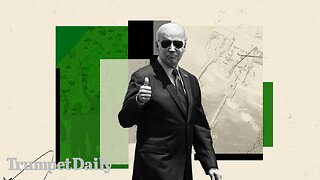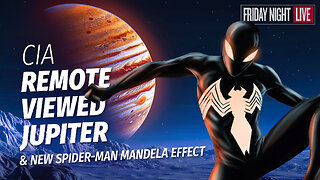5:15 Sea And Sand Love Reign Oer Me The Who
5:15
Sea And Sand
Love Reign Oer Me Album: Quadrophenia (1973)
by The Who
"5:15" is the first track on the second disc of Quadrophenia, Pete Townshend's rock opera about Jimmy, a pill-popping mod cockney who tries to find reality from sexual encounters, the company he keeps, and the clothes he wears. Only when he drowns in the ocean does he discover himself.
In this song, Jimmy The Mod takes the train (the 5:15) back to Brighton, once the site of the Mods' triumph against the Rockers, and en route he remembers various experiences of himself and his fellow Mods. Jimmy's recollections are in the main unhappy - anger, confusion, violence, sexual frustration, and rootlessness dominate his thoughts as he keeps returning to the thought: "Inside, outside, leave me alone. Inside, outside, nowhere is home."
The term "Quadrophenia" was coined by Pete Townshend, referring to schizophrenia, times two. The character Jimmy The Mod was a quadrophenic: Townshend wanted each of his four personalities to represent one of the four band members. This didn't work as planned, as he was so much more involved in the project than the other members.
Speaking with Uncut magazine in 2001, Roger Daltrey said that his main regret on Quadrophenia was the recording process. Ron Nevison, who was the producer at the time with Pete, recorded it with echo on the vocal which can never be removed now," he explained. "It just makes the vocal sound thin. It was the biggest recording mistake we ever made. The echo diminishes the character as far as I'm concerned. It always pissed me off. From day one I just f---ing hated the sound of it. He did that to my voice and I've never forgiven Ron for it."
During an infamous performance of the song on BBC's Top Of The Pops, Townshend demolished the Gretsch guitar that he'd used for the bulk of Who's Next and Quadrophenia. The Who went on to earn a life ban from BBC premises after Townshend flicked two fingers at the show's producer and Keith Moon attacked a steward who refused him entry to the bar.
Townshend's rage was genuine: The BBC, enforcing union rules, made the group record a new track for their lip-synched performance. The Who recorded their segment on October 3, 1973, which was broadcast on the 500th Edition special of the show the next evening with the offensive gestures edited out. The ban was lifted after representatives for The Who sent a letter of apology to the BBC.
This is one of the more confusing songs to understand outside the context of the album. When The Who toured for Quadrophenia in 1973, Roger Daltrey would often explain the concept between songs so listeners could follow along. Townshend wasn't happy about this - he thought the explanations weren't necessary and slowed the show down.
"Quadrophenia" refers not just to the split personalities of the character in the song, but also to the quadrophonic sound they intended for the album. The idea was to create four distinct channels, whereas stereo was just two. In a Songfacts interview with Ron Nevison, who engineered the project, he explained: "We ended up not doing it in quad, but I did record the drums with the idea of having them spread out in a quadrophonic kind of way. Although, I didn't really know - and no one knew - what to do. Nowadays, what you want to call quad and 5.1, you still put the band across the front, and in the rear you have the room, so you feel like you're in the audience almost. I didn't know what to do. You listen to the early Beatles songs when they first came into stereo, they didn't know what to do with them."
The Who needed various sound effect to create the train station atmosphere in this song, but the sound effects available were all mono recordings, so they created their own, hauling a mobile recording unit to various locales to get the sounds in stereo. For "5:15," they went to Waterloo station to get the authentic sounds of the platform. Getting the train whistle was harder because engineers (the train kind) were only allowed to use them under certain conditions. According to various accounts, Pete Townshend had his driver bribe the engineer so he would blow the whistle.
The whistle actually appears at the end of the song "I've Had Enough," which leads into "5:15" on Quadrophenia.
During live performances, the sound effects for this song were played on tape, which didn't always go well. On November 5, 1973, Pete Townshend had an onstage meltdown at the Odeon Theatre in Newcastle when the tapes didn't come in at the proper time. Eyewitness accounts recall him punching the road manager in charge of the tapes and going on a rampage against the equipment. The venue dropped the curtain when they realized something was going wrong. After about 15 minutes, the show resumed, with the band filling most of the remaining time with a lengthy jam.
"Love Reign Oer Me" is the last track on The Who's rock opera Quadrophenia. The main character Jimmy suffers from a four-way split personality, with each personality reflecting a member of The Who. This is Pete Townshend's theme. The personality is described as "a beggar, a hypocrite, love reign over me."
At the end of the story, Jimmy steals a boat and takes it to a rock out on the sea. What happens out on the rock is described in this song.
Townshend was a follower of the spiritualist Meher Baba. Meher Baba's teachings were incorporated into some of Townshend's songs, including this one.
Townshend (from the Quadrophenia liner notes): "(Love, Reign O'er Me) refers to Meher Baba's one-time comment that rain was a blessing from God; that thunder was God's Voice. It's another plea to drown, only this time in the rain. Jimmy goes through a suicide crisis. He surrenders to the inevitable, and you know, you know, when it's over and he goes back to town he'll be going through the same s--t, being in the same terrible family situation and so on, but he's moved up a level. He's weak still, but there's a strength in that weakness. He's in danger of maturing."
In 2007, Adam Sandler starred in a dramatic film titled after this song, named Reign Over Me. Sandler played a widowed dentist who can only relate to old rock music since losing his family in the September 11th terrorist attacks. The soundtrack of the film features a cover version of this song by the Pearl Jam, whose lead singer Eddie Vedder is a huge Who fan. Pearl Jam first issues the song in 2006 as a fan-club single.
Roger Daltrey was asked by Q magazine March 2008 about Pete Townshend struggling to write songs for his voice. The Who vocalist replied: "It's what makes The Who what it is. That's always been Pete's thing: writing songs with a different lead singer in mind. When you listen to something like 'Love, Reign O'er Me,' he wrote it as an enlightened, spiritual piece of music, and I went and sang it with this scream of frustration from the street. Not what we had in mind. But the great thing about The Who was that we all had the intelligence to realize when someone was putting in something valuable."
Townshend confirmed this when speaking with Rolling Stone in 2019. He envisioned the vocal as a whimper because the character in the song is having the most awful day of his life. When Daltrey let loose, it was an interpretation that shocked him, and he reflexively dismissed it. Engineer Ron Nevison convinced him to give it a chance, and Townshend came to realize that Daltrey's take was rather genius, a primal expression from his inner voice. This helped the pair come to an understanding in their relationship, which Townshend now respecting Daltrey as an actor who could bring a singular passion to the lyrics.
In a January, 2010 press release, Pete Townshend explained why Quadrophenia remains his most multi-dimensional work. Said Townshend: "Quadrophenia is music, it's angry music, it never lets up, it's full of energy. But it's also simply a story of a kid who has a bad day. It rains and he goes and sits on a rock. And he contemplates the future and the present, and he decides to do something that he's never done before - he prays."
When Pete Townshend and Roger Daltrey were given Kennedy Center Honors in 2008, Bettye LaVette performed this song at the ceremony. LaVette started recording in the '60s, but never scored a Hot 100 hit. She gained widespread recognition in the '00s when her releases began attracting attention, especially her striking renditions of famous songs. At the ceremony, Townshend and Daltry were clearly stunned by the performance, and LaVette earned a bevy of new fans.
In her Songfacts interview, LaVette explained that she didn't know these famous songs when they were first recorded, so she was free to create her own interpretations. Said LaVette: "Since the songs didn't mean anything to me, they aren't the altar I worship at the way people heard them growing up in the '60s. I don't have that reverence for them. I don't have anything that would hinder me from making them a totally different tune."
The album was going to be mixed in "quadrophonic" sound, meant to be played back in special systems with four speakers. That didn't happen. "Some people maintained that we did a quad mix - we never did," engineer Ron Nevison told Songfacts. "We checked it out ahead of time and decided at some point during the project to abandon that."
Pete Townshend said that rock music "allows you to face up to your problems and then to dance all over them." For most of his career, his devotion to Meher Baba went hand-in-hand with his music to keep him healthy spiritually, but in 1980 and 1981 when The Who were struggling to survive their internecine conflicts, he was faced with losing the band the first time, and he turned his back on the teachings of his guru, turing instead to drugs and alcohol. After lots of rehab, Townshend got sober and again found his path, again embracing Meher Baba and using music as a substitute for drugs.
-
 1:20:52
1:20:52
Michael Franzese
1 day agoMichael Franzese LIVE! | Democrat Failures & The Upcoming Election | Ep. 8
73.6K55 -
 8:36
8:36
Adam Does Movies
1 day ago $5.34 earnedThe Bikeriders Movie Review - It's Not What You Think
111K22 -
 7:30:41
7:30:41
LFA TV
14 hours agoTRUMP PHILLY & VIRGINIA SPEECHES LIVE! 1&7pm EST
98.5K62 -
 59:26
59:26
Trumpet Daily
1 day ago $3.29 earnedHamas Has a Friend in the Biden Administration - Trumpet Daily | June 21, 2024
72.1K60 -
 1:13:51
1:13:51
Edge of Wonder
1 day agoCIA Remote Viewed Jupiter, New Spider-Man Mandela Effect & Weird News
85.5K50 -
 1:41:29
1:41:29
2 MIKES LIVE
1 day ago2 MIKES LIVE #81 OPEN MIKE FRIDAY!
61.7K8 -
 1:10:19
1:10:19
Wendy Bell Radio
13 hours agoPet Talk With The Pet Doc (CBD and Mushroooms for Pets)
59.5K20 -
 42:43
42:43
The Why Files
3 days agoProof of Life After Death: Hope and a Warning From The Other Side
88.3K155 -
 1:40:35
1:40:35
Flyover Conservatives
23 hours agoShocking Facts about the Largest Structure EVER Built by Man - Conspiracy Conversations (EP #40) with David Whited - Timothy Schwab
77.9K41 -
 10:03
10:03
JoBlo Horror Originals
1 day agoThe Running Man: What Happened To This Adaptation?
52.1K29